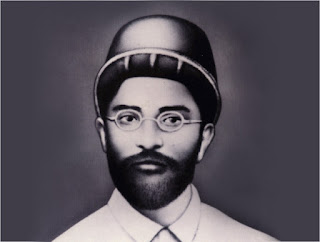Like us on FB
Dabur (1884)
Doctor Burman went to a small village near Kolkata for treatment. During the patient's care, he cured many villagers from his Ayurvedic medicines. This led to belief in him in the minds of the people, which started spreading his medicines. They soon started to become famous even outside their locality. He started a small clinic in Bengal, which is now the country's fourth largest F.M.C.G. Has changed into the company. Today in the world are the producers of Ayurvedic medicines.
Godrej (1897)
Ardeshir Godrej used to advocate first. Only then did the plan to make a lock in his mind took birth. He quit his profession of advocacy and started the task of making the lock. Soon the locks made by them created trust in the minds of the people and seeing them, they started making the world's strongest and safe shelves and other safety equipment. After this he started production of vegetable oil from soap to vegetable oil. Then they became a global brand.
Nilagiri (1905)
s. Arumuga Mudaliar used to carry checks in the British Raj from one district to another. When he used to go to Ooty or Kunur from Erode district, people also wanted to buy many things from him. First, he bought his butter business from an Englishman of Vanarpet and then started the Nilgiri Dairy Farm. First they kept dairy products at their store and then they kept other things. When Arumuga's son went to Europe, he returned to Bengaluru in 1936 to set up a super market.
Tata Group (1868)
Jamsetji Nosherwan Tata, 29, started the trading company with a capital of 21 thousand in 1868. They bought an oiled oil mill in Chinchpokli. Turned it into a cotton mill. In two years it has brought benefits. After this, Tata's expansion began. By the time of Independence, the Tata Group had become a multinational corporation. His four main goals were Hydro Electric Plant, Steel Plant, World Class Educational Institute and a big hotel. They all changed their goals in reality.
Rauf Afza (1907)
Hakim Abdul Majid of Delhi, together with many herbs, vegetables, flowers and fruits, prepared a wine, which reached home from the name of Roop Afza. This product was very cool in summer. Later when the company started making many Greek medicines products, its name was sympathetic. Later, the company spread its business to Pakistan and Bangladesh. After the partition, the partner and son of Hakim Majid went to Pakistan, then they opened the company there with the same name.
Doctor Burman went to a small village near Kolkata for treatment. During the patient's care, he cured many villagers from his Ayurvedic medicines. This led to belief in him in the minds of the people, which started spreading his medicines. They soon started to become famous even outside their locality. He started a small clinic in Bengal, which is now the country's fourth largest F.M.C.G. Has changed into the company. Today in the world are the producers of Ayurvedic medicines.
Godrej (1897)
Ardeshir Godrej used to advocate first. Only then did the plan to make a lock in his mind took birth. He quit his profession of advocacy and started the task of making the lock. Soon the locks made by them created trust in the minds of the people and seeing them, they started making the world's strongest and safe shelves and other safety equipment. After this he started production of vegetable oil from soap to vegetable oil. Then they became a global brand.
s. Arumuga Mudaliar used to carry checks in the British Raj from one district to another. When he used to go to Ooty or Kunur from Erode district, people also wanted to buy many things from him. First, he bought his butter business from an Englishman of Vanarpet and then started the Nilgiri Dairy Farm. First they kept dairy products at their store and then they kept other things. When Arumuga's son went to Europe, he returned to Bengaluru in 1936 to set up a super market.
Tata Group (1868)
Jamsetji Nosherwan Tata, 29, started the trading company with a capital of 21 thousand in 1868. They bought an oiled oil mill in Chinchpokli. Turned it into a cotton mill. In two years it has brought benefits. After this, Tata's expansion began. By the time of Independence, the Tata Group had become a multinational corporation. His four main goals were Hydro Electric Plant, Steel Plant, World Class Educational Institute and a big hotel. They all changed their goals in reality.
Rauf Afza (1907)
Hakim Abdul Majid of Delhi, together with many herbs, vegetables, flowers and fruits, prepared a wine, which reached home from the name of Roop Afza. This product was very cool in summer. Later when the company started making many Greek medicines products, its name was sympathetic. Later, the company spread its business to Pakistan and Bangladesh. After the partition, the partner and son of Hakim Majid went to Pakistan, then they opened the company there with the same name.





Comments
Post a Comment